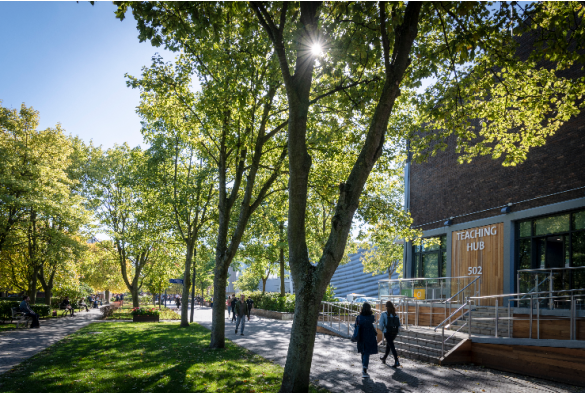
This week marks National Stalking Awareness Week but what is stalking? And what can you do if you’re worried that you or others are being stalked? We’ve put together some useful information that answer these questions.
*************************
Want to talk to someone in person about any concerns you have about stalking?
Our Campus Police Officer, Andy, will be in the Sydney Jones Library, this Thursday 25 April, 9am – 1pm, to answer your questions and tell you more about how the Police can help.
*************************
What is stalking?
The Susie Lamplugh Trust describes stalking as;
“a pattern of repeated, unwanted behaviour that causes you to feel distressed or scared. It can be perpetrated by men or women.
Stalking can happen with or without a fear of violence. This means that if you are receiving persistent unwanted contact that is causing you distress, but the person has never threatened you, this is still stalking and is not acceptable.
Stalking can consist of any type of behaviour such as regularly sending flowers or gifts, making unwanted or malicious communication, damaging property and physical or sexual assault. If the behaviour is persistent and clearly unwanted, causing you fear, distress or anxiety then it is stalking and you should not have to live with it.
Stalking often has a huge emotional impact on those it affects. It can lead to feelings of depression, anxiety and even post-traumatic stress disorder. It can be a psychological as well as a physical crime.”
How and where to get help if you need it
It’s important to know that stalking happens across all parts of society and that stalking is no more a problem at the University than anywhere else. However, we know that this doesn’t mean you may not find yourself concerned about stalking and there are various places to seek help and support.
Merseyside Police take stalking seriously and there a range of ways you can get help from them:
- If you are ever in immediate danger, always dial 999.
- We know that speaking openly is not always an option. The Silent Solution is a service where you can call 999 and alert the police that it’s not safe for you to talk by pressing ’55’ and then coughing or tapping the handset. This will indicate that help is needed, and the police will respond.
- If you’re concerned you have been a victim of stalking, please contact the police on 101 or the Merseyside Police Contact Centre via Twitter – @MerPolCC. You can also contact Crimestoppers anonymously on 0800 555111.
Where else can you get support if you don’t want to contact the police?
If you don’t want to contact the police but are still looking for support, there’s a range of options open to you:
You can:
- Contact the National Stalking Helpline, a project run by the Suzy Lamplugh Trust, on 0808 802 0300 for free advice
- Speak to friends and family about what is happening
- Contact Advice and Guidance at advice@liveprool.ac.uk or you can phone 0151 795 1000
- Use our Report + Support tool to let us know about your concerns. This tool gives you the option to report something anonymously if you need to
Most importantly, don’t suffer in silence. Stalking isn’t acceptable and there’s plenty of support at Liverpool and beyond that can help.